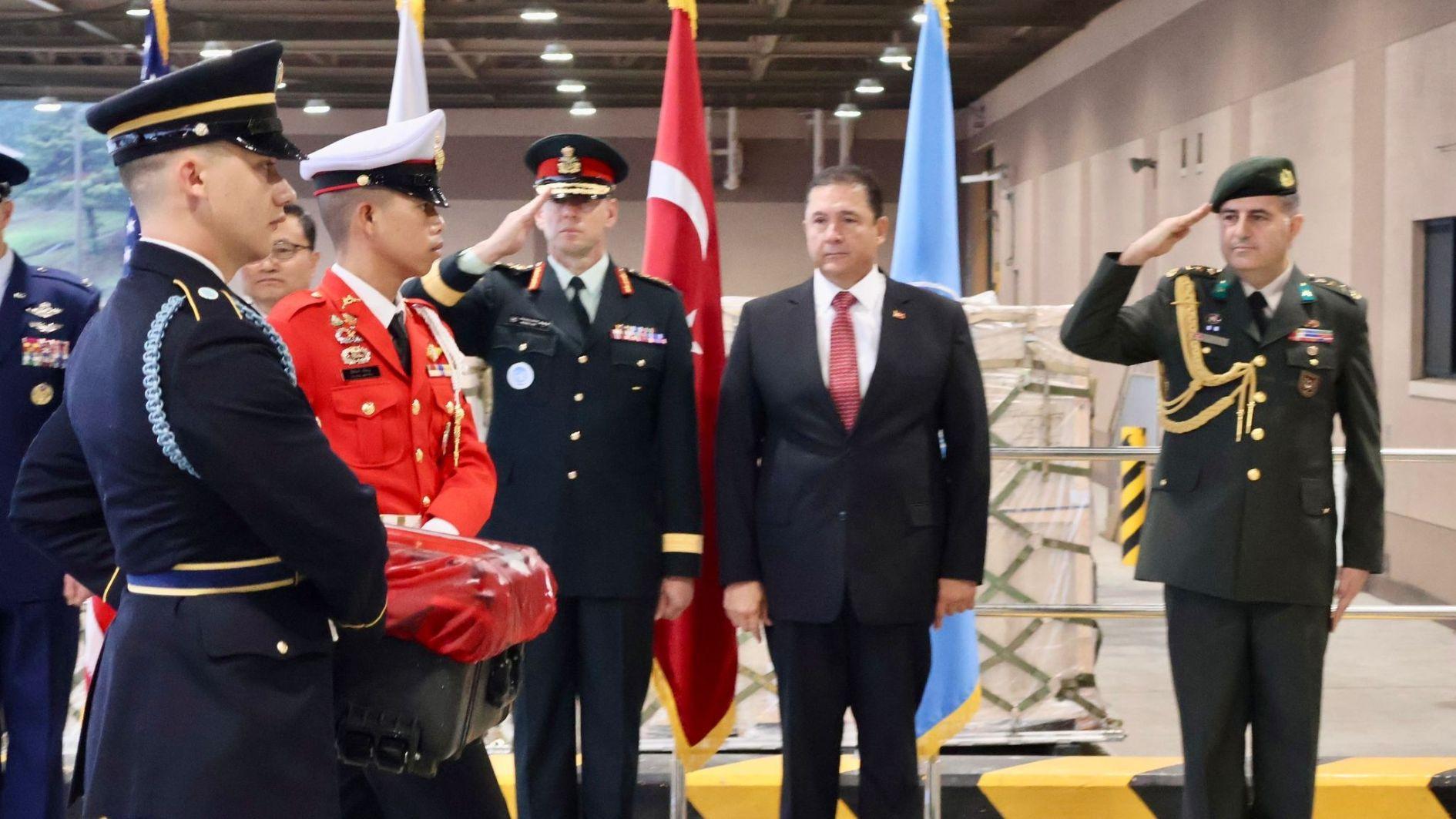
The remains of four Turkish soldiers who were killed during the Korean War of 1950-1953 have been returned to Turkish authorities years after their discovery, Türkiye’s ambassador to South Korea has announced.
Under a 2011 deal between the U.S. and North Korea, excavations in the Kunuri region — where the heaviest Turkish casualties took place during the war — had uncovered many bones and war remnants, Ambassador Murat Tamer told the Turkish state-run Anadolu Agency.
This region in North Korea was the site of some of the fiercest battles.
Türkiye contributed the fourth-largest number of troops to the Korean War, with four brigades and a total of 21,212 soldiers. Among the 16 participating countries, Türkiye also bore the third-largest number of casualties, with some 900 fallen soldiers or missing in action.
The U.N. Memorial Cemetery in Busan, South Korea, is home to the remains of 462 Turkish soldiers who fell in battle.
Tamer said the four newly discovered remains were sent to a research center in the U.S. state of Hawaii for examination and reassembly, where genetic testing was conducted.
In a bid to get accurate results, detailed analyses were carried out on fabric fragments attached to the bones to determine which army the soldiers might have belonged to, especially those who fought under the U.N. Command at the time, the envoy said.
The research, however, was delayed due to the COVID-19 pandemic.
After thorough analysis, one of the skeletons was determined with near certainty to be Turkish, while the other three were identified as having Anatolian origins through genetic and other tests, he said.
He said detailed booklets were prepared for each soldier.
Tamer also explained that, in coordination with the South Korean Defense Ministry's Korean War Casualties Recovery and Identification Agency and Türkiye's Military Attache in Seoul, the remains of the four soldiers were flown via special aircraft from Hawaii to the Osan U.S. Military Base in South Korea.
U.N. military officials at the ceremony said this was the first time that the remains of foreign soldiers, besides Koreans, had been repatriated to Korea since the war.
"For the final result, DNA tests were requested from the families and a working group involving various institutions in Türkiye was formed. The data from this commission will be compared with the remains here, and the final identities will be determined," Tamer added.